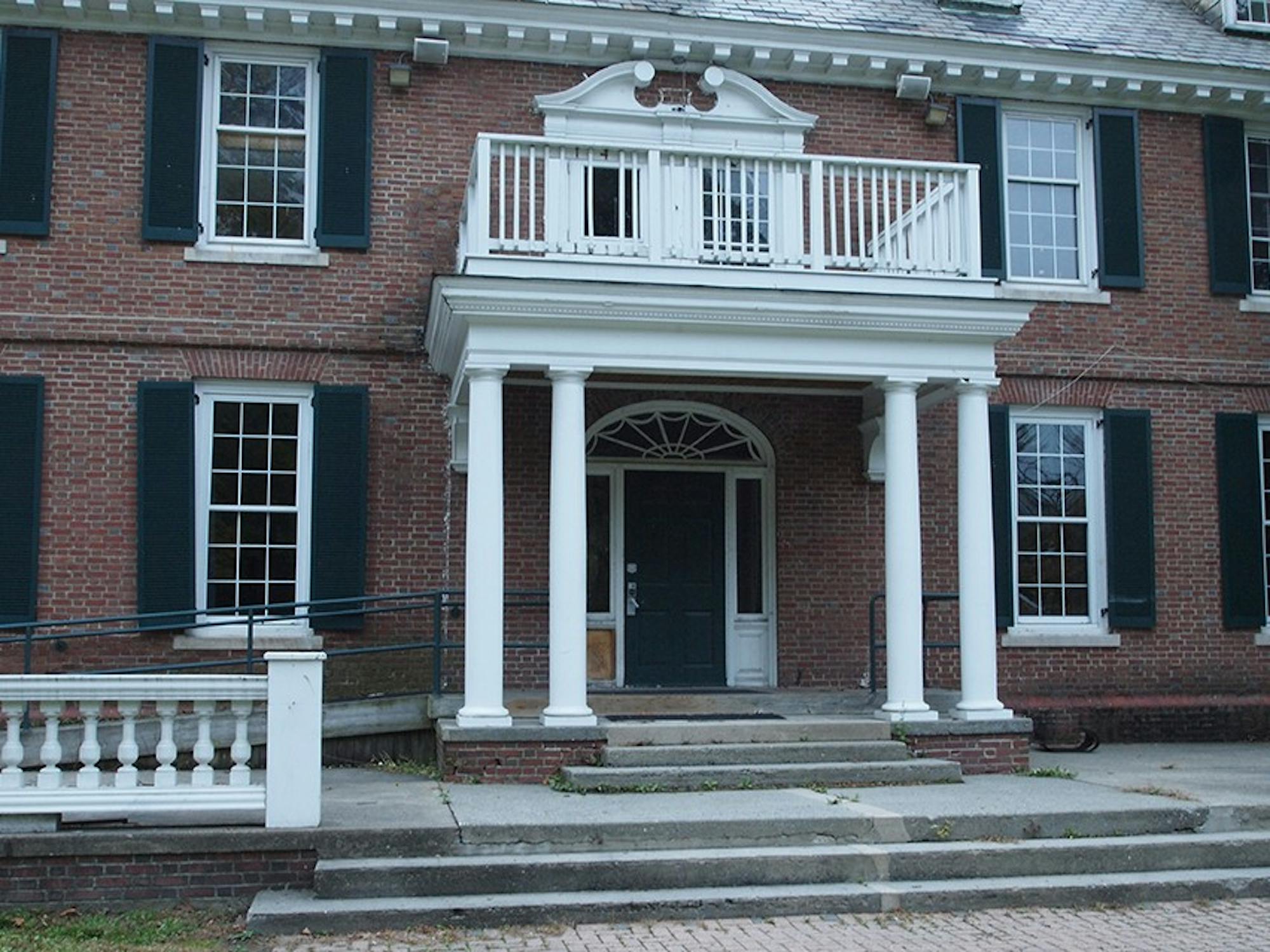Officers of the Alpha Delta Alumni Corporation are currently applying to use the former Alpha Delta fraternity house for office space, according to corporation president John Pepper ’91 Tu’97. The original application, submitted to the town of Hanover by Alpha Delta in July 2017, was denied, Pepper said.
The decision to use the house, which sits at 9 East Wheelock Street, for office space came after the March 2017 announcement made by the Dartmouth Board of Trustees that Alpha Delta would not be re-recognized as a fraternity after its derecognition in April 2015. The fraternity was derecognized after branding allegations and several years of disciplinary sanctions.
“What [using the house as office space] does is it allows the members of AD, which are 100 percent alumni, to have acceptable, legal use of the property,” Pepper said. “Today, we don’t have legal use of the property of any kind. We would like to first and foremost have use of our house again for alumni events and gatherings.”
He added that officers of the AD Alumni Corporation would likely have actual offices in the house.
According to Pepper, there are roughly 1,500 AD alumni, with the corporation having contact with about 1,350. About 70 percent of those are active and supportive, Pepper said.
Robert Houseman, Hanover director of planning, zoning and codes, said that since the denial of the house’s original application in July, AD officers and the town have been working together to ensure that the future use of AD’s house will fit with town zoning ordinances. According to Houseman, that mainly entails analyzing the relationship between the ownership of a property and its intended use.
“In July, they submitted their application for review, and we reviewed it in conjunction with the ownership analysis,” Houseman said. “At that time, it was still an organization formed to operate an undergraduate fraternity. That use is not permissible at that location currently, so we denied the application. We are assisting Alpha Delta now in looking at restructuring their documents so that they can move forward in a way that the ownership entity and the use are related.”
According to Hanover town manager Julia Griffin, the house’s location in Hanover’s institutional zone complicates the process of changing the building’s use, as the zone, which occupies roughly the same area as the College’s campus, has regulations different from other zones in Hanover.
“The challenge with this property is because it’s in the institutional zone, we have a fairly specific set of criteria for determining an office space use that’s not affiliated with the College,” Griffin said. “What we’re working with Alpha Delta to do is to figure out how to enable them to do what they want to do with the space, which is use it as office space, and still be in compliance with our zoning ordinance and essentially the definition of office as it applies to the institutional zone.”
The denial of AD’s application triggered the corporation’s right to appeal the decision within 30 days, according to Houseman. AD asked for a continuance on the appeal, he said, so that the right to a hearing is preserved but work towards a resolution can be continued without using the appeal.
“[Officers of the AD Alumni Corporation] wanted to preserve their right of appeal, however they thought they could come up with a solution that met our requirements without having to go forward with an appeal,” Houseman said. “They asked for an extension to allow them the time necessary to work through the modification.”
Pepper predicted that AD will finalize and submit its modified application by this Thanksgiving.
If they do regain use of the AD house, Pepper said that the primary goal will be to be a “force for good” in Hanover and on Dartmouth’s campus, especially in the context of College President Phil Hanlon’s Moving Dartmouth Forward initiative. The initiative included holding Dartmouth’s Greek organizations to a higher standard than in the past.
“Trying to figure out how to run a parallel path with Moving Dartmouth Forward is our top priority,” Pepper said. “Fraternities are seen as a problem. We’re no longer a fraternity; it remains to be seen whether we’ll ever have undergraduates.”
Pepper said that undergraduates joining AD again is “not on [their] radar,” but that they’d like to help Dartmouth “be seen in a more positive light.”
Pepper emphasized that there are no misgivings about the situation and that AD hopes to move forward at this point.
“There is no battle with the College, and there’s no battle with the town,” Pepper said. “This is not an adversarial relationship. There is no dispute with anybody at this point.”
Eileen (Eily) Brady is a '21 from Chicago who studies government and romance languages. Eily loves travel, politics, iced tea and her dogs, Mac and Charlie. She is thrilled to be reporting the news for The Dartmouth.




